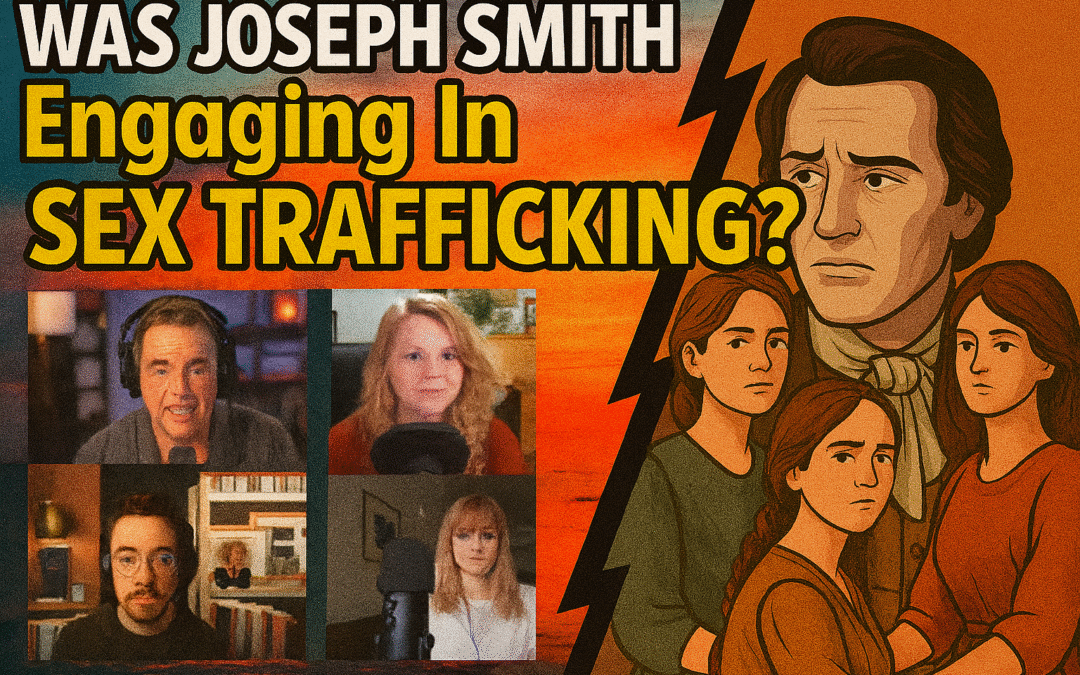Bottom Line:
Accusing Joseph Smith of sex trafficking is not just legally inaccurate — it’s historically reckless. His plural marriages were religious, not commercial. Women were not exchanged for money, nor held against their will. Even if modern audiences find 19th-century polygamy disturbing, it simply does not meet the criteria for sex trafficking under U.S. law. To equate the two trivializes real human trafficking — and erases the actual voices of the women involved.
| Podcast | Mormon Stories |
|---|---|
| Episode | “Did Joseph Smith Engage in Human Trafficking?” (Ep. 1794) |
| Title | Did Joseph Smith’s Polygamy Qualify as Sex Trafficking? |
| Category | Historical Polygamy / Legal Accusation |
| Quote | “What we’re asking is a legitimate question: was Joseph Smith’s behavior in Nauvoo something that would qualify under today’s standards for human trafficking?” — John Dehlin, |
| Core Claim | Joseph Smith’s practice of polygamy, including recruiting converts from Europe and marrying young or vulnerable women, would qualify as sex trafficking under modern U.S. legal definitions. |
| Conclusion | The Claim is False / Legally Misapplied |
| Logical Questions |
|
🔍 Core Rebuttal
⚖️ What Is Legally Considered Sex Trafficking?
According to the U.S. Department of Justice and the Trafficking Victims Protection Act (TVPA), sex trafficking requires:
- A commercial sex act;
- Obtained through force, fraud, or coercion;
- OR, if the person is under 18, any commercial sex act, regardless of coercion.
Critically, “commercial” means for monetary or financial benefit. Marriage — even with sex — does not qualify unless money, goods, or services are exchanged for the sexual activity (see DOJ TVPA Guidelines, 22 U.S.C. § 7102(11)).
“Though many modern scholars criticize polygamy on moral or ethical grounds, it does not meet the statutory definition of sex trafficking without clear evidence of commercial exchange or criminal coercion.”
— Mormoner.org
👨⚖️ What About “Spiritual Coercion”?
The panel claims that Joseph’s sealing proposals — especially promises of salvation — are equivalent to force or coercion under modern law. But this is a serious misapplication:
- Religious influence is not equivalent to legal force.
- The U.S. Supreme Court has repeatedly protected religious assent as voluntary, even when countercultural (Employment Division v. Smith, 494 U.S. 872 (1990)).
Did Joseph Smith exert strong religious influence? Yes. But influence is not coercion unless backed by threat of violence or restraint — which no woman ever accused him of.
“He asked me to pray and get my own witness. I did, and I received a calm, sweet peace that never left me.”
— Lucy Walker, Affidavit, 1902 [source]
🔍 Were There Trafficking “Networks”?
The podcast suggests Joseph Smith orchestrated a trafficking operation through missionaries who “recruited” vulnerable European converts to Nauvoo under false pretenses. But that claim ignores several facts:
- Women traveled voluntarily as converts, not as sex slaves.
- The Nauvoo Expositor used trafficking rhetoric for political exposé, not legal accusation.
- There is no evidence that women were chained, sold, exchanged for money, or imprisoned — all required elements for trafficking cases.
Even critics like Todd Compton (In Sacred Loneliness) describe the relationships as emotionally and spiritually complex, not exploitative transactions.
🤝 What Did the Women Say?
The podcast repeatedly ignores the words of the women themselves:
- Zina Huntington described her sealing as divinely confirmed.
- Helen Mar Kimball later defended plural marriage as a revealed principle.
- Emily Partridge admitted to conjugal relations with Joseph, but never accused him of abuse.
Their full testimonies are preserved at JosephSmithsPolygamy.org and Mormoner.org.
📚 Sources
- U.S. Department of Justice: TVPA Definition
- 22 U.S. Code § 7102 (11)
- Hales, Joseph Smith’s Polygamy, Vols. 1–3
- Bushman, Rough Stone Rolling, pp. 437–452
- Mormoner.org – Trafficking Claims
- JosephSmithsPolygamy.org

